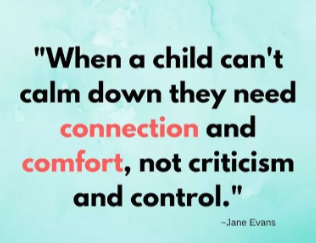Behaviour & Relationships & Trauma Perceptive Practice
The Golden Rule in The Alderton Infant School is:
“To be Kind and Friendly!”
This encompasses all aspects of positive behaviour and relationships with peers, children and adults alike.
At The Alderton Infant and Junior Schools, unwanted behaviour is understood neuro-scientifically as a communication of unmet need or as an adapted, defensive stress response. The policy is based on understanding, relationships/connection and restoration. It has the flexibility to be differentiated for children with developmental trauma. We believe that all staff, children and families understand and demonstrate the values of Compassion and Kindness, Hope and Connection and Belonging.
The understanding that children learn best within positive, trusting relationships informs our approach to managing and changing behaviour. We expect staff to work to identify the need and provide developmentally appropriate support to remove these barriers to successful engagement in school life and beyond. We expect the highest standards of behaviour and we make a point of acknowledging, praising and rewarding behaviour that is good. We understand the importance of ‘feeling safe’ in promoting social engagement and learning. Our focus is to ensure that all pupils feel safe within the school and develop positive, trusting relationships with all members of the school community and an ethos that displays compassion and kindness.
We are a school that has embraced the Essex approach to understanding behaviour and supporting emotional wellbeing known as Trauma Perceptive Practice (TPP).
For further information please see out Behaviour and Relationships Policy
What is Trauma Perceptive Practice (TPP)?

Trauma Perceptive Practice (TPP) is the Essex approach to understanding behaviour and supporting emotional wellbeing in children and young people and is the approach adopted by Epping Forest Schools Partnership Trust.
There has been a huge growth in our knowledge about the formation of our brain and how it is affected by our childhood experiences. Adversity during childhood can have long lasting effects on how children and young people’s brains and bodies develop, with implications for behaviour, health and achievement seen well into adulthood.
This 'Brain Builders' video explains how experiences in the first years of our lives affect how our brains form. Science tells us that the stress of abuse or neglect can damage the basic structures of a child's developing brain. Without the right help, it can put them at risk of a lifetime of health problems, developmental issues and addiction.
How a child's brain develops through early experiences.
How a child's brain develops through early experiences.
TPP whilst supportive of those who have experienced challenge, trauma and adversity, is also an approach which has a multitude of benefits for all pupils and adults in our trust.
TPP focuses on understanding the stress response and how important it is for us to teach and practice self-regulation and resilience.
TPP is a relationship driven model for behaviour management and has the underlying belief that most behaviour is needs driven and applies to both children and adults.
A TPP approach should lead adults to offer different, alternative and more helpful responses to difficulties and challenges with relationships and behaviour which will ensure interactions are supportive and nurturing, rather than negative.
Within the TPP approach, it is important to remember the importance of consequences, the use of restorative approaches and optimism. TPP is not a softly, softly, approach to behaviour management. It helps to build resilience and self-esteem. It works towards strengthening relationships through repair.
All staff at The Alderton Infant School and Nursery have received Trauma Perceptive Practice (TPP) training.
We expect our staff to demonstrate the core values of TPP principles with our pupils. TPP principles are reflected in our Behaviour & Relationships Policy which recognises that the good relationships we create with children will have the greatest influence on their interactions with us and one another.
We promote an environment which encourages a sense of belonging, the development of safe and trusted relationships and the building of resilience. TPP creates an underlying culture of mutual respect and support where we practice:
- Compassion and kindness instead of blame and shame
- Hope instead of hopelessness
- Connection and belonging rather than disconnection
You can read more about TPP in the leaflet below:
